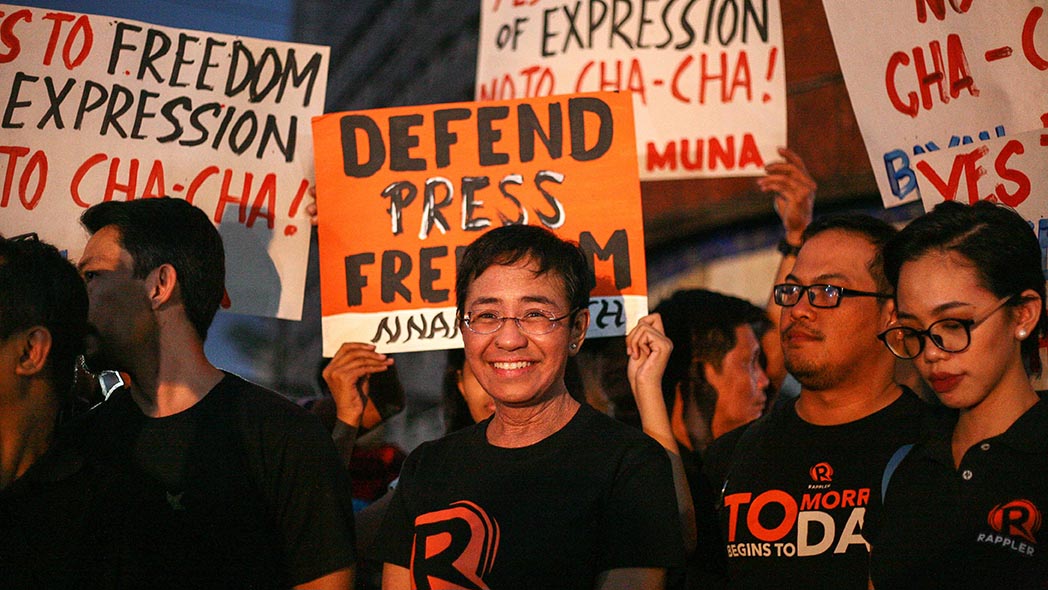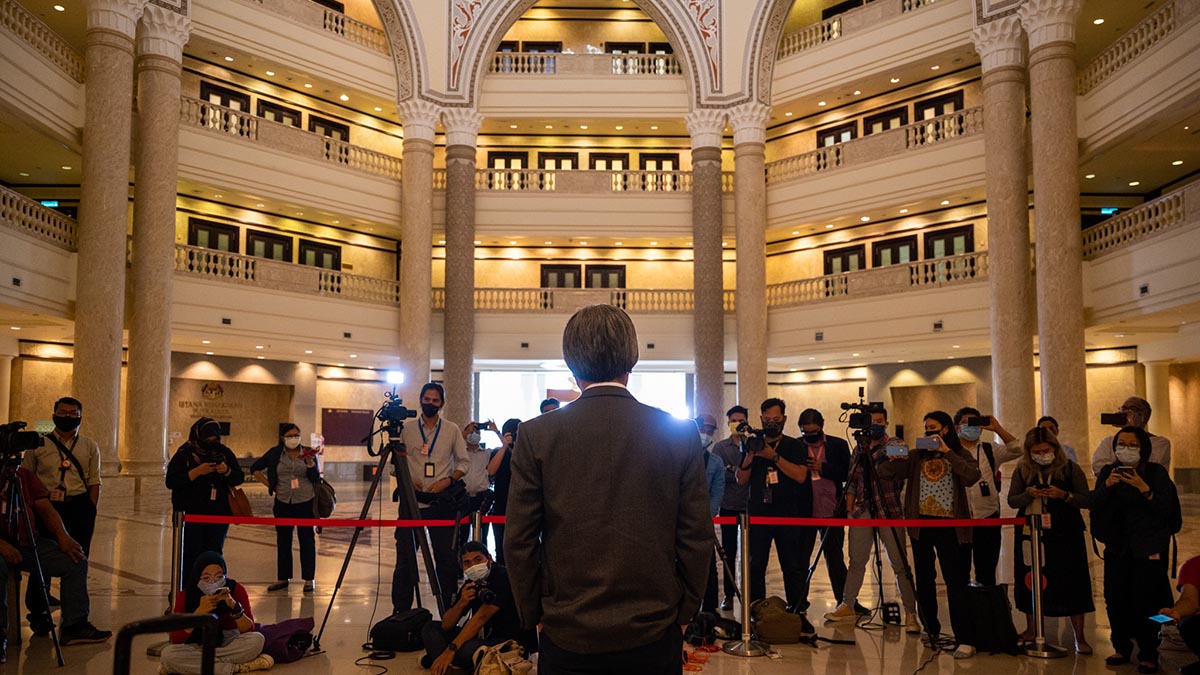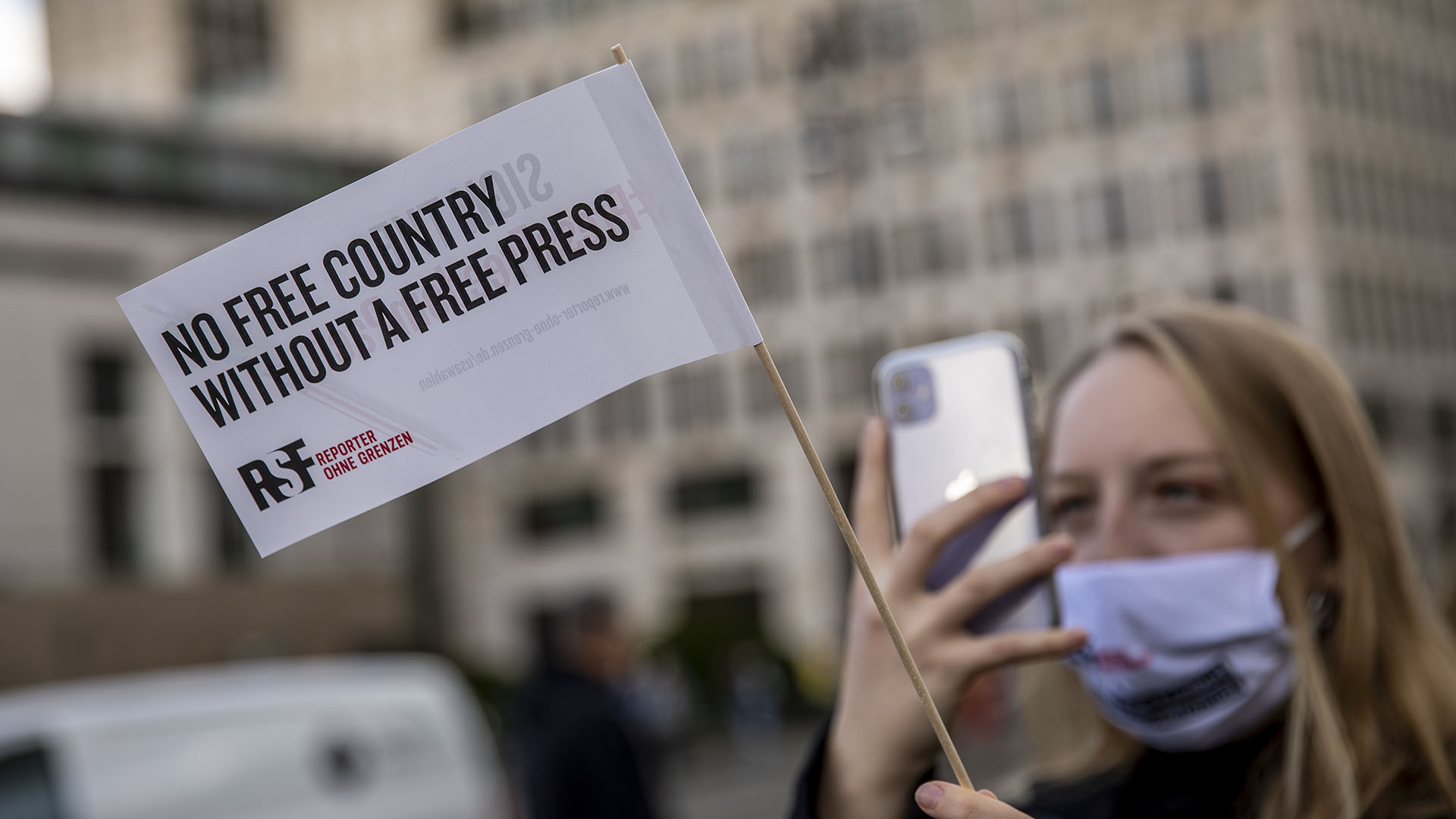Philippine news organization Rappler has made a name for itself by reporting on financial crime and corruption — and has become a target of the powerful people it investigates. Rappler’s founder and CEO Maria Ressa was convicted of cyber libel in June 2020 for a story about Filipino businessman Wilfredo Keng’s connections to President Rodrigo Duterte and faces up to six years in prison if her conviction is upheld. She was recently nominated for the 2021 Nobel Peace Prize for her commitment to a free and independent press.
This week, the collaborative journalism network Forbidden Stories is presenting a series of videos to amplify Rappler’s work in covering the Duterte regime.
Duterte has been a frequent target of Rappler since he took office in 2016, with stories published about his aggressive war on drugs, his entourage and business connections. He has responded forcefully, barring a Rappler reporter from entering the presidential palace, using an army of social media bots to wage a disinformation campaign and even threatening journalists with assassination, according to the video series.
“Despite the Duterte regime throwing the whole autocratic playbook at them … the journalists at Rappler have never cowed or backed down due to the pressure,” said Phineas Rueckert, an investigative journalist with Forbidden Stories. “They have, in fact, done the opposite: They have continued to go out in the field to report stories that challenge those in power.”
Forbidden Stories is a nonprofit founded to carry on the work of journalists who have been imprisoned or killed. Its first project pursued the work of Daphne Caruana Galizia, a reporter who had been investigating corruption and organized crime in Malta before she was assassinated in 2017. Since then, they have continued investigations into cartel involvement in Mexican politics, corruption in Ghanaian football, and environmental scandals around the world.
“Even if you kill the messenger,” Rueckert said, “you can’t kill the message.”
“The Forbidden Stories of Rappler” was produced with support from the Pulitzer Center. Watch the third installment, “The Money,” which looks at Rappler’s reporting on financial crime and corruption, below:



